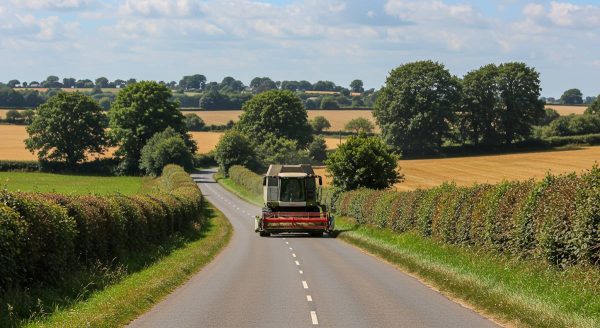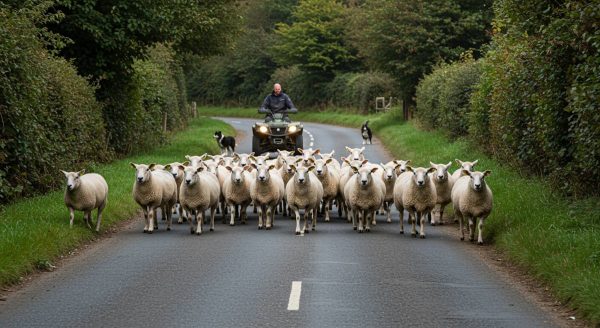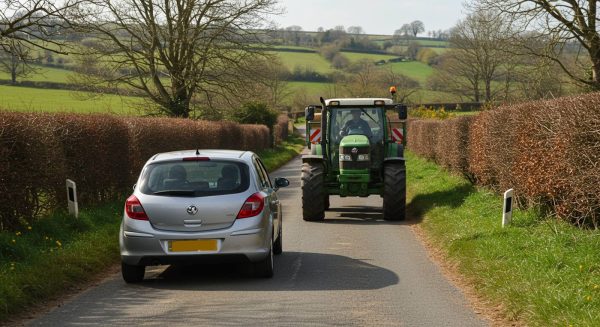Agricultural vehicles in the UK enjoy specific tax exemptions designed to support the farming sector. According to the Driver and Vehicle Standards Agency (DVSA), vehicles used solely for agriculture, horticulture, or forestry purposes can qualify for vehicle tax exemption. In 2017 guidance (updated 2023), the Department for Transport confirmed that while these vehicles may be tax-exempt, they still need to be registered and licensed annually.
Qualifying Vehicles and Their Uses
The tax exemption applies to several categories of agricultural vehicles, each with specific use cases:
Agricultural Tractors
Tractors form the primary category of exempt vehicles, provided they are used exclusively for agricultural, horticultural, or forestry work. For example:
- A farmer using their tractor to transport harvested grain from the field to storage within their farm
- A contractor using a tractor for hedge cutting along public roads
- A forestry worker using a tractor to transport timber from woodland to a processing area
- A farmer using their tractor for snow clearance during winter months
According to the government guidance, tractors can be used for any distance on public roads using rebated fuel (red diesel), provided they are engaged in agricultural work. However, if the same tractor is used for non-agricultural haulage, it loses both its tax exemption and right to use red diesel.
Agricultural Engines and Handlers
Purpose-built vehicles such as combine harvesters, crop sprayers, and forage harvesters qualify for exemption. Real-world applications include:
- A combine harvester travelling between different fields during harvest season
- A telescopic handler moving between farm buildings
- A self-propelled sprayer moving between different areas of farmland

The guidance specifically notes that these vehicles must not carry any load except what’s necessary for their operation when travelling on public roads.
Light Agricultural Vehicles
These include vehicles weighing less than 1,000 kg. For instance:
- A farm quad bike used for checking livestock
- A small utility vehicle used for maintaining fences
- A lightweight tracked vehicle used in forestry operations

Width and Speed Restrictions

The documentation provides important dimensional restrictions:
- Standard agricultural vehicles: maximum width of 2.55 m
- Wider vehicles (2.55m to 3.5m): require police notification for journeys over 5 miles
- Extra wide vehicles (3.5m to 4.3m): maximum speed of 12 mph and require police notification
Registration Requirements and Compliance
While exempt from tax, these vehicles must still be registered with the DVLA. The process includes:
- Annual Registration Even though no tax is payable, farmers must still complete an annual registration. This can be done:
- Online through the DVLA portal
- At a post office with vehicle licensing facilities
- By post using form V10
- Documentation Requirements Farmers should maintain:
- Vehicle registration certificate (V5C)
- Insurance documentation
- Records of vehicle use to demonstrate agricultural purpose
Practical Examples of Compliance
Consider these scenarios:
Example 1: Mixed Use
A farmer owns a tractor used primarily for agricultural work but occasionally helps a neighbour with construction work for payment. In this case, the tractor would lose its tax-exempt status as it’s no longer used solely for agriculture.
Example 2: Compliant Use
A contractor owns a self-propelled sprayer used exclusively for crop spraying on various farms. Despite travelling on public roads between jobs, this remains tax-exempt as all use is agricultural.
Common Pitfalls to Avoid
- Non-Agricultural Use The most common mistake is using tax-exempt vehicles for non-agricultural purposes. For example, using an agricultural tractor for commercial construction work would invalidate the exemption.
- Distance Limitations While agricultural vehicles can travel any distance for agricultural purposes, limited use vehicles (a different category) are restricted to journeys of 1.5 km between pieces of land.
- Registration Errors Failing to renew the annual registration, even though it’s free, can result in penalties. The DVLA maintains active enforcement of these requirements.
This comprehensive system of exemptions supports the UK agricultural sector while ensuring proper vehicle registration and safe operation on public roads. Farmers and agricultural contractors should maintain detailed records and stay informed about regulatory updates to ensure continued compliance.
